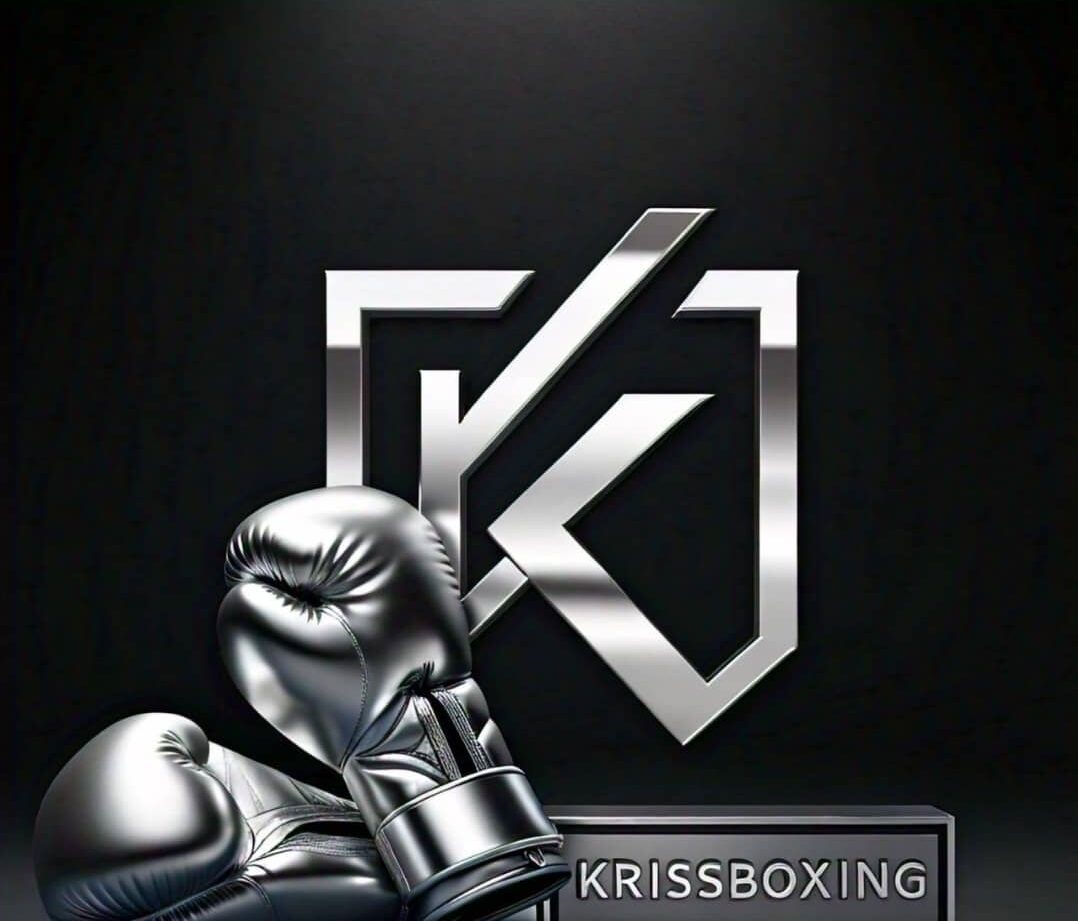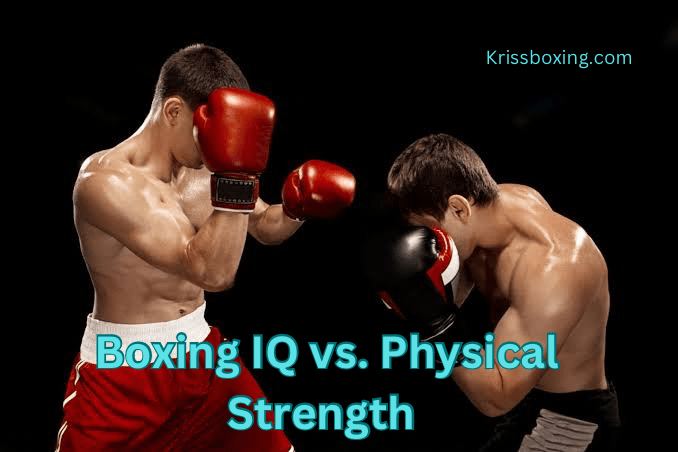In the world of boxing, there’s a long-standing debate, which comes first between brawn, or brains; or more accurately, boxing IQ, or the fighter’s aptitude to think and plan accordingly.
Though strength can deliver knockdowns and even consequent KOs, sophisticated thinking to outmaneuver the opponent, corner him, and control the tempo of the bout mostly predicts who will raise his hands the winner.
That is why in this article I will try to explain to you what boxing IQ is and what physical properties might outweigh it during the fight.
The Power of Physical Strength in Boxing
Why Strength Alone Isn’t Enough
It can, however, be seen that physical strength is indeed an essential component of boxing. The capacity to land a fantastic hit can bring the balance on the side of a fighter or even finish the match on the spot.
Many aggressive fighters like the ‘Iron’ Mike Tyson have demonstrated the effectiveness of force as a way of defeating the rivals.
However, raw power is a weak drive. But merely having power is not enough: you have to be able to hit your adversary where it counts and avoid getting hit back.
The Importance of Conditioning
Strength also means sustaining the strength required in a certain activity for multiple cycles. This means that a fighter who will easily get tired will lose the upper hand, even if he or she is muscle-powerful.
The programs that create conditionings along with the strength means that power can be applied, even if it is in a late round. This is the place where power evolves with wisdom; learning how to try to save energy and regulate own work is a major component of the boxing IQ.
The Art of Outsmarting Opponents
Reading Your Opponent
Boxing IQ is commonly described as “CHOKE your opponent. ” a fighter can think critically and try to outwit an opponent during the fight.
In boxing, those fighters who possess higher levels of boxing IQ including Mayweather and Ali were not necessarily the strongest fighters, yet they could outrage their opponents, make predictions, and utilize the opponent’s flaws.
These fighters were waiting for their opponents’ mistakes and setting great plots on failing them.
Adapting in the Ring
One of the most important notions in boxing IQ is the ability to change during the fight. Some fighters may enter the bout with some strategy in mind, but when one has a high boxing IQ it is easy for him to realize what strategy is efficient and which one is not.
This level of flexibility to go from the back foot to an attack or to understand when to go forward is what determines the victor in a bout.
The Balance Between the Two: Strength vs. Strategy
Timing and Positioning: The Best of Both Worlds
The true success of a boxer lies not in choosing one over the other, but in finding a balance between strength and strategy. Timing and positioning are where boxing IQ and physical strength intersect.
A fighter who knows when to unleash a powerful punch, and from which angle, can do more damage than one who simply throws strong but ill-timed punches.
For example, counter-punchers rely on timing to deliver power at the precise moment when their opponent is vulnerable. This shows that, when paired with smart ring generalship, strength becomes far more effective.
Defense as a Strategy
Another aspect where boxing IQ outshines pure strength is defense. Fighters with high defensive IQ know how to avoid or block punches effectively while conserving energy.
Fighters like Pernell Whitaker and Willie Pep, who were known for their defensive prowess, might not have been the strongest in terms of punching power, but their ability to slip, block, and parry punches allowed them to dominate opponents who relied purely on strength.
Which Matters More
The Verdict: It Depends on the Situation
Perhaps one of the most important notions in boxing IQ is the ability to be adaptable or to shift during the fight. Some may go into the bout with a little strategy up their sleeve, but with a high boxing IQ, one can easily realize what strategy is efficient and which simply is not.
“It’s this level of flexibility the ability to seamlessly transition from the backfoot to an attack or to know when to go forward that crowns a victor in a bout.”.
At the end of the day It all depends on the situation. Between a pair of equally skilled boxers, physical strength may be the differentiator. But, in brawn versus brain, the guy with the higher boxing IQ tends to win.
Frequently Asked Question
What is Boxing IQ, and how does it affect performance?
Boxer's IQ, in the case of boxing, is the ability of a person to strategize against, read, and adapt to opponents in real time during a bout. It greatly affects the performance, as it allows fighters to use their opponents' weaknesses, save energy, and try to be wiser in the ring.
Can a fight be won merely on physical strength in boxing?
This can lead to strong punches, which consequently result in knockouts, but alone is not usually enough to ensure victory in the ring consistently. A well-rounded fighter who possesses a high boxing IQ with strength is more likely to succeed.
How do fighters become more Boxing intelligent?
Fighters develop a boxing IQ with film study, experience from hardened trainers, and constant sparring through various opponents to get a feel for the different styles and strategies out there.
What is more important for a novice, Boxing IQ or strength?
Beginners in the sport should start building physical strength, but the strategy and ring awareness honed through sparring and training should be a priority.
How do timing and positioning play into Boxing IQ?
Timing and positioning are what boxing IQ is made of. Proper timing sets up the ability to hit with snapping power; good positioning sets the opportunity for dictating the pace and not getting hit with unnecessary shots.
Conclusion
In the age-old question of boxing IQ versus physical strength, no one knows who outweighs who. Both are needful for success in the ring, but more often than not, boxing IQ generally just has a slight edge towards getting long-term victories.
A high IQ in British boxing helps a fighter outmaneuver a stronger opponent, make smarter decisions, and work on the fly. Although in the naked realm, power can simply end a fight if used effectively.
What is important is finding that balance: having strength, coupled with an ability to foresee, anticipate such moves, and alter strategies in real time.


